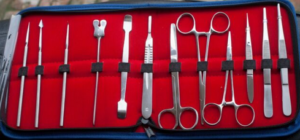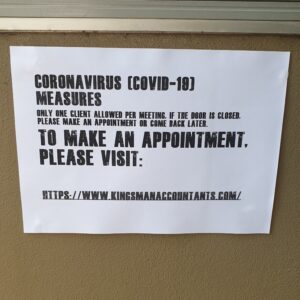
Doctors, specialists and medical professionals tax guide to income, allowances and claiming work-related deductions.
As a doctor, specialist or other types of medical professionals, such as a physiotherapist or radiologist, working in a hospital or clinic, you know the importance of experience when it comes to assessing essential matters, whether it’s a broken leg or a set of blood test results. It’s no different for your taxes.
Getting expert advice is the smartest thing you can do at the end of each financial year. Not only will you save much time, but you’ll also be putting your finances into the hands of someone who knows the tax system inside and out – which means they will make sure you get every deduction you deserve.
If you are an employee
To complete your return as a medical professional employed by a company, you’ll first need an income statement from your employer (previously called a “payment summary” or “group certificate”). This is a summary that outlines all of your salary, wages, allowances and bonuses for the financial year.
You won’t need to have an actual copy of this statement, as it should be lodged by your employer directly to the ATO. Once this has been lodged, we can download the information for you and then help you work out your deductions.
What do I need to know about claiming deductions?
As you know, you’re entitled to claim deductions on any money spent during the financial year on products or services that directly related to earning an income. But there are two things you need to remember:
- First, you need to have spent the money yourself (your employer can’t have reimbursed it), and
- Secondly, you need to keep a record of the expense, such as a receipt or invoice.
What deductions can I claim?
There is a wide range of deductions you can claim as a medical professional, such as:
- Self-education costs for attending any courses, training or seminars specifically related to your current line of work, including compulsory professional development to maintain your medical registration, postgraduate study in your current area of speciality
- The cost of a first aid training course if you’re a designated first aid person and need to do first aid training to assist in emergency work situations
- Phone and internet expenses for any work-related usage on your phone or device provided your employer does not already cover them
- Working from home office expenses such as heating or cooling, depreciation and repairs to equipment
- Travel expenses such as accommodation and meals if you travel for work and need to stay away from home overnight (for example, if you need to go interstate to observe a particular medical procedure) and pay these expenses yourself
- Car expenses, including parking costs and tolls, if you travel between different jobs locations on the same day (for example going from doing ward rounds in a hospital in the morning to a clinic at a different place to do consultations in the afternoon)
- The cost of purchasing a membership with the Australian Medical Association (AMA) or other medical professional associations, as well as the cost of renewing your annual practising certificate
- Professional indemnity insurance related to your work activities
- Any expenses connected to buying, repairing and cleaning any work clothing items that are either part of a uniform or distinctive to your company (such as a shirt with a company logo on it) or that have protective benefits (like a face mask, hair net or gloves)
- Any expenses related to buying and insuring equipment or tools specifically required for your work, such as a stethoscope or scales, or a bag to transport patient files
What can’t I claim?
There are several expenses you can’t claim, including:
- The cost of meals or snacks consumed during a typical workday, even if you are given an allowance by your employer to cover the meal expense
- Any grooming costs, including hairdressing services and buying items of makeup, even if your job requires to be well presented
- Any costs incurred when travelling between your home and your workplace, even if you live a long distance away
- Any regular clothing is worn to your workplace that could also be worn outside of work (such as black pants or a white shirt) even if you only wear it for work and bought it specifically to wear to work
- Childcare costs incurred while you’re working
What records do I need to keep?
Record-keeping essential at tax time, so you need to stay on top of your receipts and have total set receipts if you want to get a reasonable tax refund. It’s a smart idea to create a comfortable and reliable system to help you keep on top of this throughout the year.
Remember, you don’t need to keep physical receipts, and it’s acceptable to keep a digital copy (such as a photo of a receipt or an email receipt) provided it is possible to read:
- Date the expense was paid
- Date of the document
- The name of the supplier
- Amount of the expense
- Nature of the goods or services
You also don’t need to keep receipts for expenses under $10 (as long as these don’t cumulatively > $200).
Our expert accounting and taxation teams have all the advice you need.
Our accounting firms team not only identify opportunities that can help streamline your medical practices and businesses but also assist in identifying areas where you can cut costs and save money.
Investing in a professional and licensed accountant for your medical practice is often a critical decision in moving your business forward.
Our experience enables us to deliver expert tax advice, efficiently prepare and lodge your tax returns and focus on achieving the maximum potential tax refunds. In particular, we provided specialist tax and accounting advice on optimum medical practice structure, both for new practice owners and established medical practice clients, to enable them to accumulate wealth in the most protected and tax-effective environment.
Need more help?

+61 2 8011 4699




